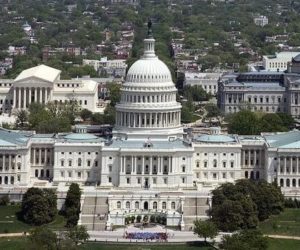Goldman Sachs bonus pool estimated at $725,000 per employee
This week, business reporters told us that Goldman Sachs 2009 third quarter profits swelled, compared with 2008, to an estimated $3.19 billion. The bonus pool stands at $16.7 billion, and, by the end of the year, it could hit $23 billion, according to reports. However, Goldman reported first quarter profits (net earnings) of $1.81 billion; second quarter, $3.44 billion. Thus end-of-year net earnings should be about $11 billion.
How can bonuses be twice as much as profits?
Yeah, I get that the “cost” of the bonuses must have been deducted from quarterly reports. But that’s not how most businesses determine end-of-the-year bonuses. At least I don’t think it is.
To be dumped in a pool and calculated quarterly, these payments sound more like contractual obligations (“salary”) than “bonus.” Bonuses are “extras” that the employee can’t count on or expect to get. Yet, for Goldman, there appears to be a tax benefit to calling these payments “bonuses”:
Bonuses are considered taxable to employees, but are considered an expense of doing business and are, in most cases, a tax benefit to the employer.
On some level, it doesn’t matter if this is bonus or salary: the numbers are too huge to comprehend.
In October, Goldman employed 31,700. If the bonus pool hits $23 billion and the number of employees were to be constant, that’s $725,000.00 (rounded) per employee. (But the number of employees isn’t constant; Goldman employs about 4,000 more “staff” today than in March, which means the average “bonus” is much greater for those employed the entire 12 months.) And you and I know that every employee at Goldman isn’t going to get a bonus, much less one that is 28 times greater than average per capita income in the U.S. ($26,178).
The men (mostly) who brought the world’s economy to its knees are getting millions in “bonus” payments … for what? The governments of the world kept them from falling apart. In response, they have lobbied vociferously against Congressional reform and continue to gamble with derivatives ($95.6 trillion in December 2005 to $190.0 trillion as on June 2009) while jacking up credit card interest (Citigroup hits 29.99%) and watching foreclosures grow. (The financial sector also doesn’t seem to want to do much about “toxic” assets either; a friend tried for six months to buy a house where the owner was upside-down.) Maybe we shouldn’t have bothered — at least this culture of entitlement would have been busted.
Goldman Sachs is in the digital information business. With computerized trades and computer-generated-products (CDOs and the like), they are reaping the benefits of collapsed time and geographic boundaries (space). They must also be reaping monopoly rents, given that there are only a handful of firms in the world that do what they do.
Where are the citizen’s watchdogs? They’re not in the U.S. Treasury department: it’s populated with Goldman Sachs and other Wall Street used-to-bes, and many took home thousands from Wall Street last year (emphasis added):
The advisers include Gene Sperling, who last year took in $887,727 from Goldman Sachs and $158,000 for speeches mostly to financial companies, including the firm run by accused Ponzi scheme mastermind R. Allen Stanford. Another top aide, Lee Sachs, reported more than $3 million in salary and partnership income from Mariner Investment Group, a New York hedge fund.
As part of Geithner’s kitchen cabinet, Sperling and Sachs wield influence behind the scenes at the Treasury Department, where they help oversee the $700 billion banking rescue and craft executive pay rules and the revamp of financial regulations. Yet they haven’t faced the public scrutiny given to Senate-confirmed appointees, nor are they compelled to testify in Congress to defend or explain the Treasury’s policies.
[…]
Goldman Sachs paid Sperling the $887,727 for advice on its charitable giving. That made the bank his highest-paying employer. Even Geithner’s chief of staff Patterson, who was a full-time lobbyist at the firm, did not make as much as Sperling did on a part-time basis. Patterson reported earning $637,492 from Goldman Sachs last year.
Where is the watchdog press? Where are the 21st century trustbusters? Where?
This post also appeared at Newsvine.
Known for gnawing at complex questions like a terrier with a bone. Digital evangelist, writer, teacher. Transplanted Southerner; teach newbies to ride motorcycles. @kegill (Twitter and Mastodon.social); wiredpen.com
















